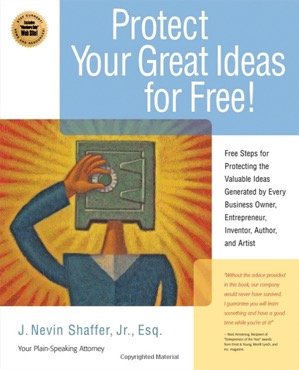Who’s Right About “Who Dat”?
By Nevin Shaffer
After thirty years as a trademark attorney, it is clear to me that trademarks are easily one of the most misunderstood things in the world. Everyone thinks they know everything they need to know about trademarks because we are immersed in a sea of them from the moment we wake up until we go to bed. We sometimes have complete conversations with people saying nothing to them but trademarks. “Drove my HONDA to SEARS, picked up a DIEHARD and a pair of NIKES, had a BIG MAC and a COKE.” That’s how we talk and that sentence tells us a lot. We know the price, quality, origin and source of the car the person drives, the shoes he wears and the food he eats. The point is, though, if you think you know anything about trademark law and the proper use of trademarks by how they are used in conversation, you are dead wrong.
The recent dust up over the rights to the mark WHO DAT is a case in point. The NFL sent a cease and desist letter [I had a client once who called it a “Cease to Exist” letter which I think more accurately describes it] to a store selling t-shirts with the words WHO DAT and the fleur de lis on it just before the Saints first trip ever to the super bowl. Saints fans all around the country and particularly in New Orleans were incensed. Coach Payton is quoted at saying “I don’t think anyone can own WHO DAT personally.” A Louisiana Representative is quoted as saying “If the NFL owns WHO DAT then a football is round.” A local citizen is said to have asked “How can they put a trademark on something that has been around for 150 years?” All of these folks exhibit severe cases of “The Law is NOT Logical-itus”, a commonly occurring affliction that is usually harmless but sometimes deadly.
One reason for law schools, I suppose, is to help explain these illogical things. Basic trademark law states that a trademark is ANY word, symbol or slogan that one person (or business) uses to identify and distinguish his goods or services from all the other competitors in the same business. The law says you get rights to a trademark from simply USING the word, symbol or slogan on the goods or services. These are basic “common law” rights that extend only to the boundary of the geographic area you sold in. One t-shirt in New Orleans doesn’t do it but hundreds of shirts over many years may give you all of Bourbon Street. Registration expands your rights to the entire state or country. A federal registration covers all 50 states and the territories and possessions of the United States and it is renewable forever so long as you keep using it. Common law rights of first use prevail in their limited geographic area over a subsequently registered state or federal mark. Registration is preferable but not every mark is register able. Owners of registrations must use the mark in both its legal parts: adjective and descriptive term. HONDA automobile; NIKE tennis shoes; etc. If the adjective is just descriptive of the thing being sold it is NOT register able. APPLE for fruit? Forgetaboutit. APPLE computers? Excellent. Once a mark is registered, no other mark the same or similar to it will ever be allowed for the same or similar thing.
Sooooo. The coach, the politician and the citizen have it wrong. Anyone can personally own a mark, even the NFL and even if the term has been used for 150 years. The issue is, Who Dat that used the mark first for t-shirts and Who Dat that owns a registration? The records show that at the time of the dust up with the NFL, neither side owned any Federal rights to the term. Thus, responding to public pressure and the lack of a legal right to enforce a mark they did not own, the NFL backed off. Score: Who Dat Nation 1- NFL 0.
Nevin is a licensed patent attorney and Florida Bar Certified Intellectual Property Law Specialist and has been practicing Intellectual Property law for over 28 years. You may contact Nevin by phone at 850-934-4124 and/or email at nevin@jnevinshaffer.com. Or visit his website at www.nevinshaffer.com.
This material is presented for general informational purposes only and should not be considered a legal opinion nor relied upon in lieu of specific legal advice. Accordingly, readers who require legal services in connection with their specific circumstances should consult an attorney competent in the field of intellectual property.

